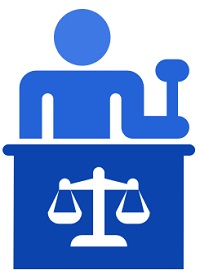Emancipation of a Minor
Before children reach the age of 18, parents or legal guardians are legally responsible for them. Emancipation allows underage children, or minors, to take legal responsibility for themselves. Once emancipated, minors can sign binding contracts, decide where they will live, and make their own medical decisions. Iowa Code chapter 232C covers emancipation of minors.
Minors can petition the court for an emancipation order, if they are Iowa residents, at least 16 years old, and not currently under the state’s care, custody, or control. Iowa Code section 232C.1.
The petition must contain:
- The minor's name, mailing address and date of birth
- The parents’ or legal guardians’ names and mailing addresses
- Proof of the minor's independence, such as
- Employment or other non-government assistance means of support
- Management of personal affairs
- Commitment and ability to pursue continued training and education
- One of the following:
- Proof that the minor has been living alone for 3 straight months
- Proof that the parents’ or legal guardians’ home is not healthy or safe
- Parents’ or legal guardians’ written consent for the emancipation, witnessed by a notary public
Within 90 days of filing the petition, court will hold a hearing on the petition. Minors can participate in the hearing on their own, hire an attorney, or the court may appoint a guardian ad litem on behalf of the minor.
Courts can respond to emancipation petitions in many ways. The court can require the minor, parents, and legal guardians to attend family mediation to try to resolve their issues. The court can request that the Department of Human Service investigate allegations of child abuse or neglect. The court can even treat the petition as a family in need of assistance proceeding instead of emancipation. 
Above all, the court will decide whether emancipation is in the best interest of the minor. The court will consider:
- Potential risks and consequences of emancipation and whether the minor understands the risks and consequences
- The ability of the minor to support themselves financially
- The minor's education level and success
- The minor's criminal record
- The minor's desires
- The parents' and legal guardians’ recommendations
Minors have the burden of proof. The minor must prove by clear and convincing evidence that they should be emancipated.
Once the minor is emancipated, the parents are no longer:
- Responsible for future child support obligations
- Responsible for medical support or decisions
- Responsible for the minor's debts
- Entitled to the minor's income or property
If the court grants you emancipation, you may want to consider setting up Durable Powers of Attorney for Health Care and Financial Matters and a Living Will, because no one else will have the authority to make health or financial decisions on your behalf. For more information on these documents, see our page on Alternatives to Guardianships and Conservatorships.
For more information on emancipation, see Iowa Legal Aid’s article Emancipation and Minor Guardianships.
